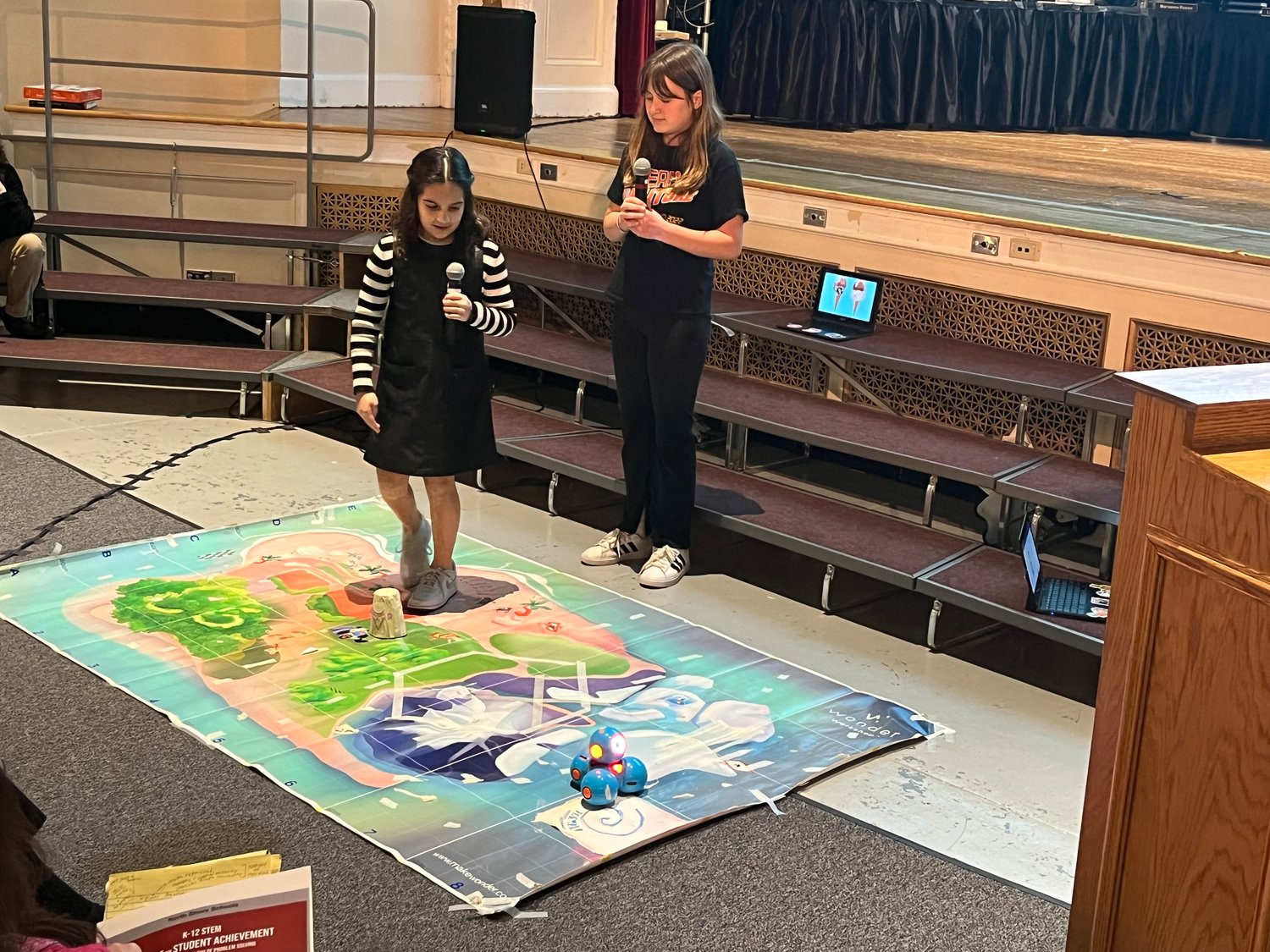North Shore School District students show off their STEM expertise
Parents in the North Shore School District will be happy to hear that despite the pandemic’s impact on education across the country, their children seem to have managed to weather the storm better than most students in the area in the science, technology, English and math fields.
During the first Board of Education meeting of 2023, administrators, teachers and students described and discussed the district’s approach to STEM studies, what they’re doing well and what they need to work towards in the future.
The presentation began with a demonstration by several fifth grade students who are part of the district’s Wonder League Club. Wonder League itself is an international coding and robotics club, which encourages young students to get engaged with more advanced engineering concepts at a young age.
Two students, Sylvia McAdams and Margaux Bare, explained how they had worked to program the robot Dash to follow their instructions and maneuver around a maze, The two young wunderkind discussed how by trial and error they were able to get their robot friend to obey their directional commands and find the right path.
“We had to add new instructions to his code, like turn left 15 degrees, or forward 10 centimeters,” Margaux said.
“One of the other problems we were facing during this challenge was having a little bit of trouble getting Dash to turn the right direction,” Sylvia continued.
After enjoying a demonstration of Dash’s maneuverability, the Board of Education then heard from Assistant Superintendent for Instruction CarolAnn Smyth, who highlighted the areas in which North Shore students had shown positive development and improvement, and some other areas which required more attention by the district going forward.
Smyth explained to attendees that students showed great advancement in problem solving and transitioning to higher level sciences, scoring higher on standardized tests than many of the surrounding districts. However there was certainly still room for improvement, particularly in addressing equity amongst disadvantaged students as well as working to incorporate more performance-based assessments into the curriculum, to better track individuals’ progress.
“The data suggests that our students are becoming really strong mathematical problem solvers, and we attribute this to high quality learning experiences with which our teachers engage our students,” Smyth explained. “We also work to build their self-confidence as mathematicians, as well as their meta-cognitive skills.”

 44.0°,
Mostly Cloudy
44.0°,
Mostly Cloudy 




